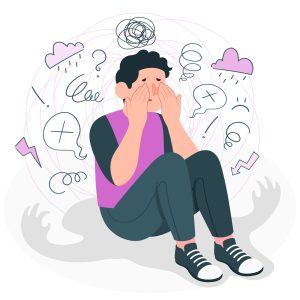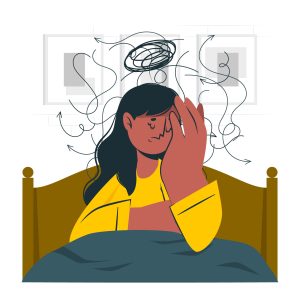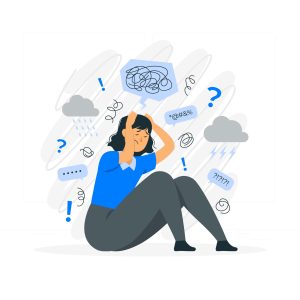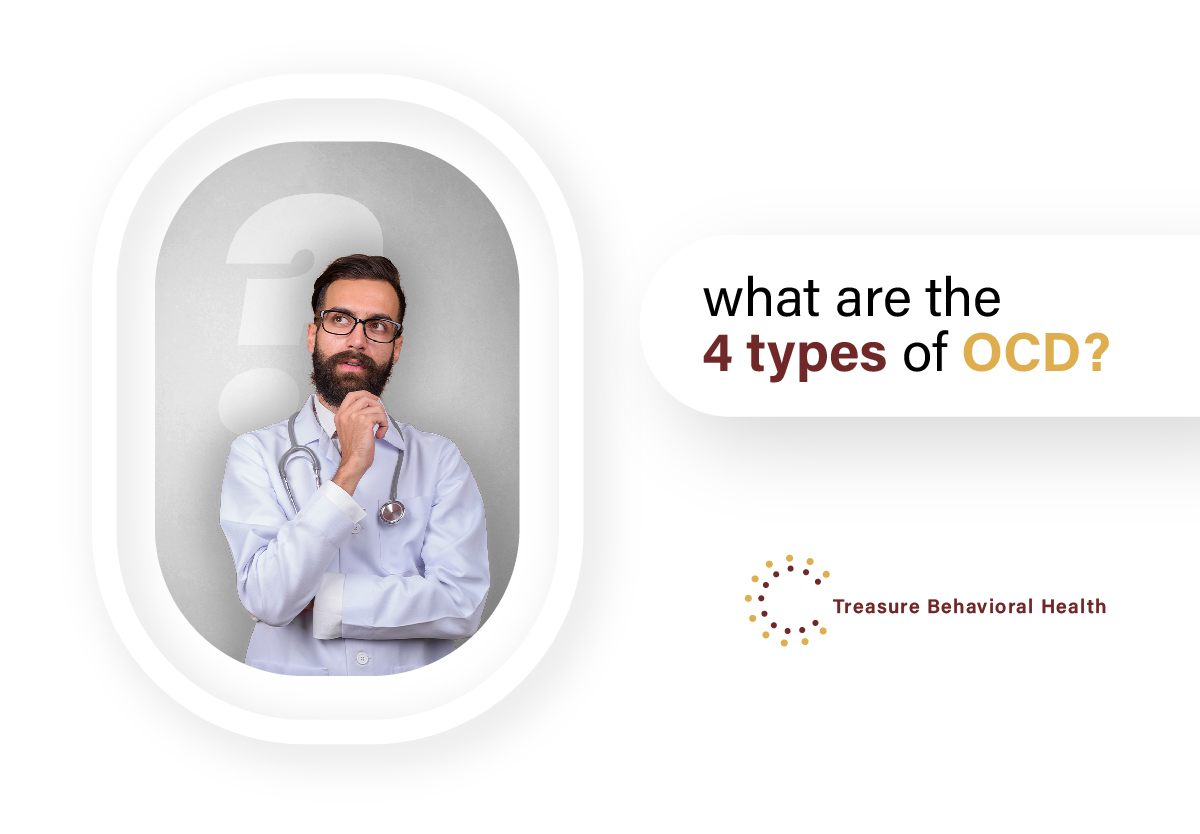Living with obsessive-compulsive disorder (OCD) can be really tough. You’re constantly bombarded with scary thoughts are real that make you doubt yourself.
These thoughts feel so real that it’s hard to ignore them.
You try to ease the anxiety by doing certain things over and over again, but it never really goes away.
It’s like a never-ending cycle that drains you emotionally and physically.
But there is hope. With the right help and support, you can learn to manage OCD and take back control of your life.
You are not alone, and things can get better with time and treatment.
At Treasure Behavioral Health, we can treat OCD, which can help you break the cycle of obsessions and compulsions. This will help you gain self-control and live a life free of anxiety.
The experience of having OCD can be difficult and frequently misinterpreted.
One of the most perplexing aspects of OCD is how intense the obsessions and compulsions feel to those who suffer from it. We will look into Why Does OCD Feel So Real?
Living with OCD: A Daily Struggle
- Constant Fear and Anxiety

Living with OCD can feel like living in a state of fear and anxiety.
Every day, your mind is bombarded with intrusive thoughts that scare you.
These thoughts go against everything you value and believe in, leaving you feeling ashamed and afraid.
- Doubt and Uncertainty

The uncertainty of whether these intrusive thoughts are real is what allows OCD to thrive.
You question your own intentions and struggle to distinguish these thoughts from your true desires.
It is a suffocating fear that something terrible will happen if you don’t listen to these intrusive thoughts.
- Compulsive Behaviors
To ease the torment of intrusive thoughts, you engage in rituals or repetitive behaviors.
These rituals provide temporary relief from overwhelming anxiety but only offer a fleeting sense of control.
The anxiety always comes rushing back, forcing you into an exhausting cycle of repetition.
- The Cruel Irony of OCD
The cruel irony lies in the fact that these rituals provide only fleeting relief.
Despite the temporary respite, anxiety inevitably returns, compelling you to repeat the same behaviors incessantly.
This cycle drains your time, energy, and emotional well-being, leaving you exhausted.
Example of OCD Intrusive Thoughts
OCD can come in different forms, each with its own set of intrusive thoughts.
Here are some examples:
- Contamination OCD: Worries about getting sick from germs or dirt, like fearing doorknobs or feeling dirty from touching certain things.
- Symmetry and Ordering OCD: Feeling upset by things that aren’t symmetrical or obsessing over arranging items perfectly.
- Checking OCD: Constantly worrying about safety, like whether doors are locked or if appliances are turned off.
- Harm OCD: Scary thoughts about hurting yourself or others, even though you don’t want to.
- Sexual OCD: Unwanted sexual thoughts or images that go against your values, like inappropriate fantasies or fears of doing something wrong.
- Hoarding OCD: Feeling anxious about throwing things away, even if they’re not needed, due to attachment or fear of losing them.
Why Does OCD Feel So Real?
Living with OCD can be incredibly challenging because the thoughts are real. Here is why:
- Nature of Intrusive Thoughts
OCD thoughts often trigger intense anxiety, making them hard to ignore. This anxiety activates the body’s fight-or-flight response, flooding it with stress hormones like adrenaline and cortisol.
- Body Sensations Amplify the Feeling
Physical symptoms like a racing heart, sweating, or nausea make the threat seem even more immediate and urgent, even though it is just a thought.
- Compulsive Actions as a Response
To alleviate the anxiety, individuals often feel compelled to perform certain actions or rituals, reinforcing the belief that the threat is real.
What’s the Difference Between Impulsive and Intrusive Thoughts?
- Impulsive Thoughts

Impulsive thoughts occur suddenly and unexpectedly. People who have impulsive thoughts frequently feel a loss of control over their thinking patterns.
- Intrusive Thoughts

Intrusive thoughts are persistent and recurring, even when people try to ignore them. These thoughts can be frightening or unwanted, and they will persist despite efforts to dismiss them.
In Conclusion, why does OCD feel so real?
Living with OCD is tough, with constant fear, doubt, and compulsive behaviors. The thoughts are real, triggering intense anxiety and compelling repetitive actions.
But with the right support, you can manage OCD and regain control of your life.
There is hope for a better tomorrow, free from the grip of OCD.
Treasure Behavioral Health can treat OCD and help you break the cycle of compulsions and obsessions. As a result, you will be able to maintain control of yourself and live an anxiety-free life.
Contact us to get more information.
FAQs
How do I know if it’s OCD or real?
There is usually nothing to worry about when an intrusive thought passes through your mind as quickly as it arrives.
However, for people with OCD, things are more complicated. People with OCD may have more intrusive thoughts and become more concerned about them than those without OCD.
Why do intrusive thoughts feel so real?
Such factors could include mental health issues like depression, anxiety, or OCD, as well as daily life concerns.
One of the reasons intrusive thoughts seem so real is that they engage our senses. The mind creates realistic scenarios that play out in our heads, convincing us that they are real.
Why are intrusive thoughts so scary?
The content of unwanted intrusive thoughts frequently includes sexual, violent, or socially unacceptable images.
People who have unwanted intrusive thoughts are afraid they will commit the acts they envision in their minds.
They are also concerned that their thoughts are negative about themselves.

No comment